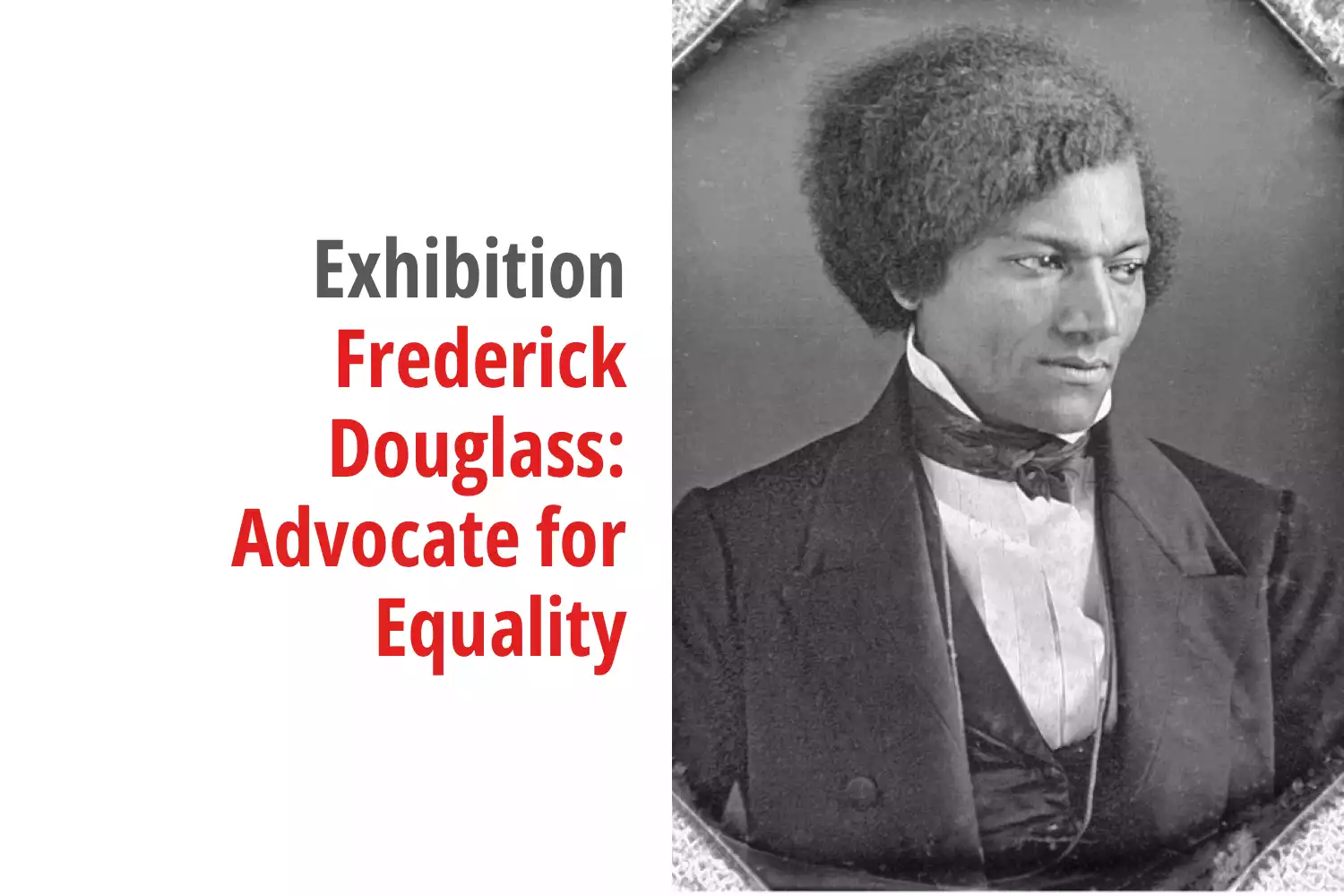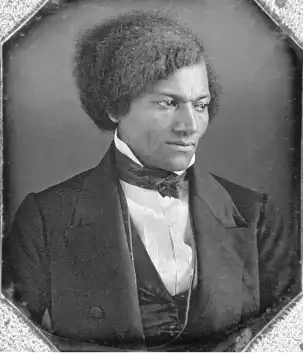
Exhibit Info
This Exhibition Is No Longer Showing
Title:
Frederick Douglass: Advocate for Equality
Dates:
June 16 to August 15, 2023
Location:
First Floor Lobby
About:
 This traveling exhibition depicts the full trajectory of Douglass’ life from 1818-1895. From the abolition of slavery to the fight against Jim Crow, he challenged Americans to live up to the founding ideals of the United States. Born a slave in Talbot County on the eastern shore of Maryland in February 1818, Frederick Douglass lived twenty years as a slave and nearly nine years as a fugitive slave subject to capture. From the 1840s to his death in 1895, he attained international fame as an abolitionist, reformer, editor, orator of almost unparalleled stature, and author of three classic autobiographies.
This traveling exhibition depicts the full trajectory of Douglass’ life from 1818-1895. From the abolition of slavery to the fight against Jim Crow, he challenged Americans to live up to the founding ideals of the United States. Born a slave in Talbot County on the eastern shore of Maryland in February 1818, Frederick Douglass lived twenty years as a slave and nearly nine years as a fugitive slave subject to capture. From the 1840s to his death in 1895, he attained international fame as an abolitionist, reformer, editor, orator of almost unparalleled stature, and author of three classic autobiographies.
This epic life, a career of many transformations and personal reinventions, emerges from a single-page summary Douglass provided of his story in 1893, displayed in this exhibition. He believed all people were born with the same rights and dedicated his life to achieving liberty and equality. His eloquence and faith in the ideals of the Declaration and Constitution continue to inspire Americans today. The life and works of Frederick Douglass continue to shape our understanding of America and force us to reckon with the legacy of slavery and the promises of democracy.
This exhibit coincides with our annual community reading of Douglass’ speech “What to the Slave is the Fourth of July?” that will be held via Zoom on July 5 at 7:30 pm. Frederick Douglass gave his famous speech on July 5, 1852 at the request of the Ladies Anti-Slavery Society of Rochester. He opted not to deliver it on July 4th, a date meant to commemorate our national independence. At the time, our country was fiercely divided over the issue of slavery, but the conflict had yet to escalate to a Civil War. Douglass’s words challenge us even today, as this country continues to wrestle with issues of race and inequality. If interested in learning more about the July 5 event, click here.
This exhibition was developed by the Gilder Lehrman Institute of American History and made possible by the Charles H. Revson Foundation.
